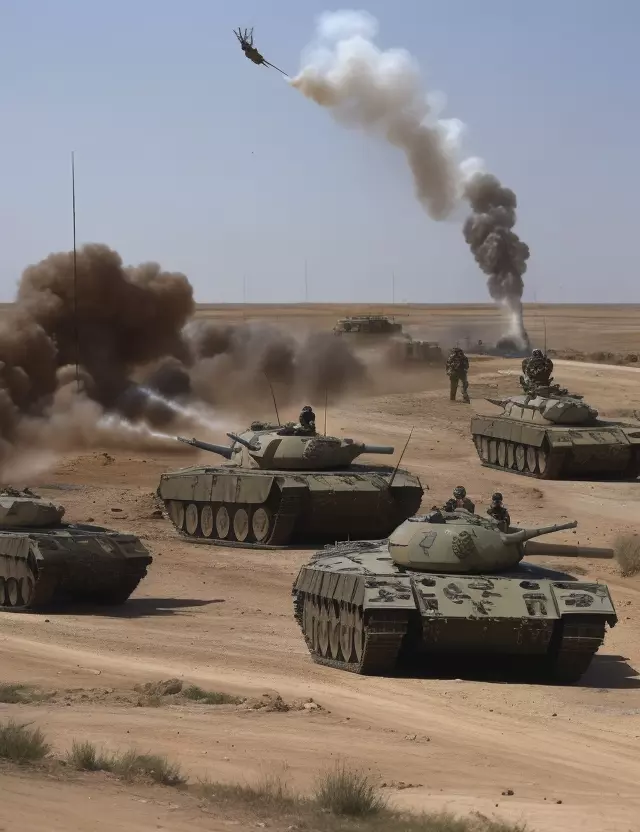A Precarious Peace: The End of the Yom Kippur War
A United Nations-Sanctioned Cease-Fire Resolves the Conflict

On October 23, 1973, a critical moment in the Middle East's tumultuous history unfolded as a United Nations-sanctioned cease-fire brought an end to the Yom Kippur War, a conflict that had pitted Israel against its Arab neighbors. This cease-fire marked a significant step toward resolving the hostilities.
The Yom Kippur War
The Yom Kippur War, also known as the October War, began on October 6, 1973, when Egypt and Syria launched a coordinated surprise attack on Israel. The conflict stemmed from long-standing tensions and disputes over territories in the region.
Early Days of the War
In the initial days of the war, the Arab coalition, which included Egypt and Syria, made substantial territorial gains. Their surprise attack had caught Israel off guard.
International Pressure and Diplomacy
As the conflict escalated, international pressure mounted for a cease-fire and a resolution to the crisis. Diplomatic efforts were initiated to bring an end to the hostilities.
The United Nations Involvement
The United Nations played a critical role in brokering a cease-fire between the warring parties. The international body's efforts aimed to halt the violence and create a framework for negotiations.
The Cease-Fire Agreement
On October 23, 1973, the United Nations Security Council passed Resolution 338, which called for an immediate cease-fire and set the stage for negotiations to reach a lasting settlement.
Implementation of the Cease-Fire
The cease-fire took effect on October 24, 1973, ending the active combat operations. It was a welcome relief for both sides, as the conflict had taken a heavy toll in terms of lives and resources.
Post-War Implications
The Yom Kippur War had a lasting impact on the region, influencing subsequent negotiations and peace processes. It underscored the need for diplomatic solutions to longstanding conflicts.
Ongoing Challenges
While the cease-fire ended the hostilities, it did not immediately resolve the underlying issues between Israel and its Arab neighbors, which would continue to be the subject of negotiations and diplomacy.
The United Nations-sanctioned cease-fire that ended the Yom Kippur War on October 23, 1973, marked a critical step toward de-escalating the conflict. It demonstrated the capacity for international diplomacy to intervene in times of crisis and laid the groundwork for future negotiations aimed at achieving a lasting peace in the Middle East.



